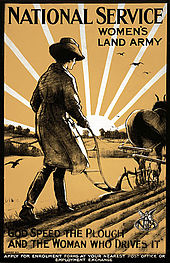War and Memory
“It must have been the opening phase of the 1914-18 war that the village was shocked by…“
When reading the memoirs of George Clifton Hughes, it becomes identifiable that he tries to navigate his words away from concentrating too much on the conflict, the consequences and the aftermath of war. He almost discusses war as an afterthought when discussing other subjects. Despite this, the thing with two world wars of the twentieth century is that they are always their in the minds of those that suffered. Hughes himself does suffer from the first world war, he may not directly suffer in terms of losing family members and friends, but his village suffered, the affect the war had on his future is telling, and those around that suffered with the shock of the conflicts. As mentioned in my introduction post Hughes is very early in divulging information about the village fatalities of the first world war, regarding the death of Charlie Kemp. It is interesting reading this perception of war from someone who lived through as Hughes admits that the village may have thought that the war would have been over by ‘Christmas’ this can be interpreted in two ways, one being that the village was naïve and was slow in receiving news regarding the war, or it shows that’s that the village did not foresee any real lack of danger that would put any life or structures at risk.
“The village was shocked by the news of its first fatality”

Hughes mentions the prime minister Lloyd George, who preceded H. H. Asquith in 1916, this implies that Hughes is around five years old at this time. So he is divulging some of his earliest memories to us, he calls for George’s call for ‘munitions and more munitions’ (4) Which lead to an ‘ever increasing number of women employed in this work.’ The cause of War cause a change in the gender role for women, Hughes exemplifies as he recognises how they ‘manned the trams.’ This also included a total of ‘113,000 women working on the land’ which as discussed by Wrexham History ‘was still not enough to meet the shortfall in agricultural labour.’ The rise in employment did not mean a rise in economic stability, it was quite the opposite the effects of the war lead to the cost of a trip to the pictures being increased by ‘100 per cent.’ The effect the war had on the normal working class family meant that ‘food was becoming scarce’ which consequently lead to prices beginning to ‘soar.’
Despite the sadness and the austerity that the first world war has brought to the village of Rhos, it is hard to ignore that Hughes is trying to concentrate on the positives that the war may have had on his town. As young child during the war, he acknowledges how his town ‘boasted two picture houses.’ Over the war years Hughes became witness to many films and plays at the public hall. Hughes has memories of watching the ‘legendary Pearl White’ in her fifteen episodes of which as you can see from the clip features lots of captions which Hughes recognises the welsh speakers of the village may have found ‘difficult.’
The effects that war had on children lead to ‘do-it yourself entertainment’ as Hughes says this entertainment was cantered around the churches and chapels of the village. Hughes is keen to display the togetherness of the town during the war period, and it can certainly be argued that this togetherness shaped him for the rest of his life. It helped shape his political beliefs and helped him stand side by side with those being mistreated in the mining industry when they went to ‘war’ with their employers later in his life.
Bibliography
Sherman, Thomas. The Perils of Pauline. Youtube.com. date accessed 16th April 2019.
G. Clifton Hughes. Burnett Archive of Working Class Autobiographies, University of Brunel Library, Special Collection Library, vol. 4 2.426
Women in service. Wrexham-History. Web. Date accessed 16th April 2019-04-18

Leave a Reply